Media coverage
Share

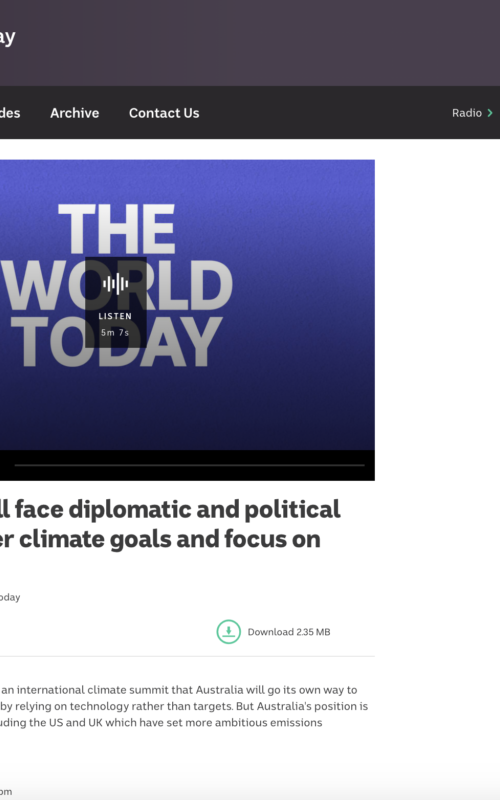
ABC radio interviews our CEO Bill Hare on Australia's climate targets and the economic implications of being left behind in a world where countries are increasing their action to reduce emissions.
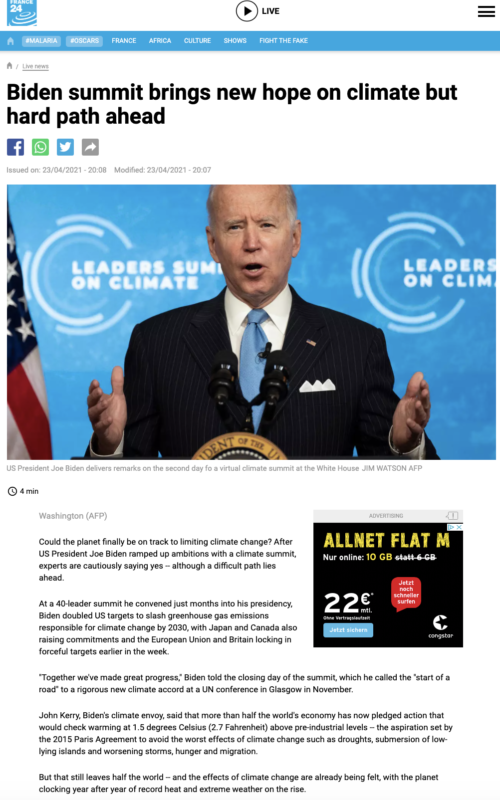
Climate Action Trackers analysis shows new emissions reductions pledges announced at the US climate summit could reduced the gap in meeting the 1.5 goal by 12 to 14 percent - a major reduction, but still not enough.
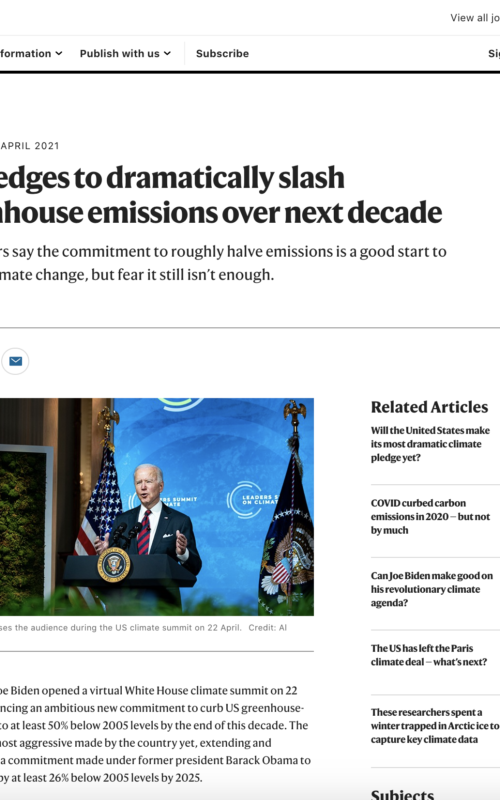
“There’s a long way to go, but I’m more optimistic than I was a few months ago,” our CEO Bill Hare comments on the announcement of new US climate targets.
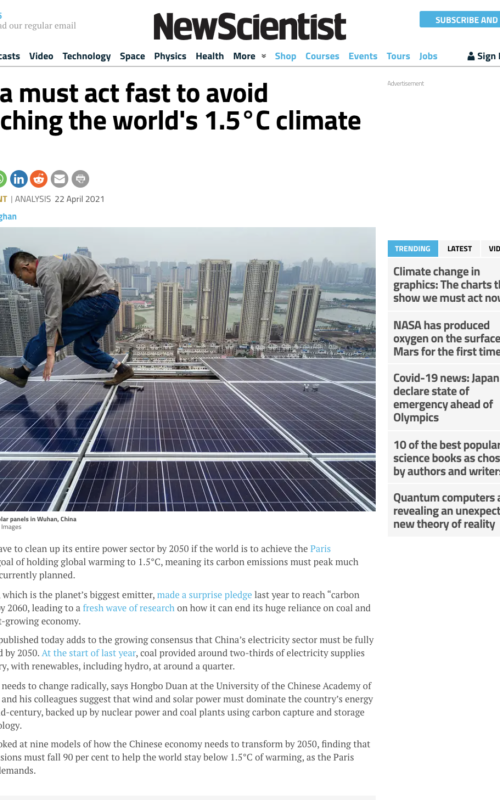
Bill Hare comments on the need for China to go hard and fast on emissions reductions to achieve the 1.5°C goal of the Paris Agreement
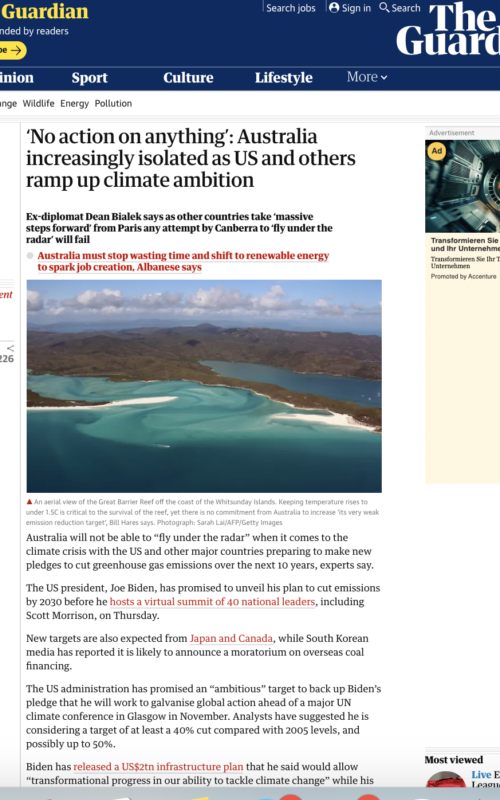
Australia already has the third-highest per capita emissions of any country and is “set to fall further and further behind”, comments Bill Hare, CEO of Climate Analytics.

BBC World Service
Dr Fahad Saeed is interviewed on the BBC World Service's Newsday programme looking at dangerous heat events in South Asia - begins at 18m22s.
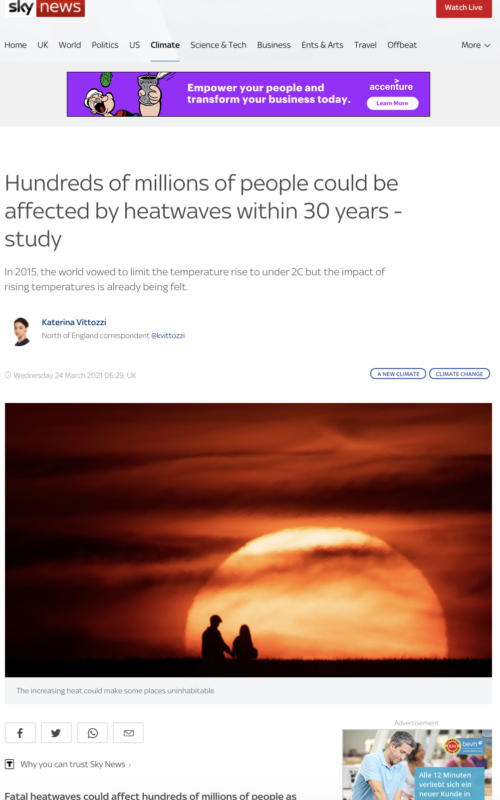
Sky News
Fatal heatwaves could affect hundreds of millions of people as global temperatures rise, a new study estimates. Heat stress events are considered potentially deadly when 'wet bulb' temperatures exceed 35C for three or more days. In this new research, the team found that, with an increase of 2C, there could be 774 million exposures to potentially unsurvivable heat by 2050. At 1.5C, that number would be nearly half, at 423 million.
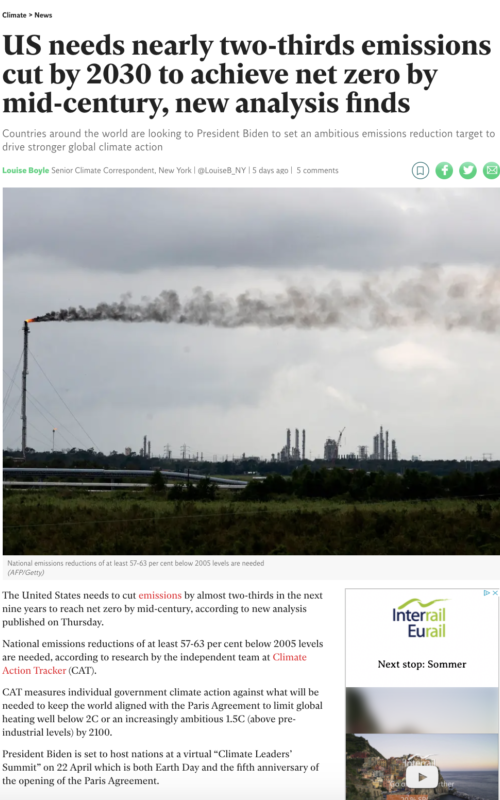
The Independent
The United States needs to cut emissions by almost two-thirds in the next nine years to reach net zero by mid-century, according to new analysis from the Climate Action Tracker. “It would be a major boost to international climate cooperation. Having the US taking such strong action would reverberate across the world, and result in other countries also stepping up to adopt the kind of targets they need to make global net zero a reality,” said Bill Hare, CEO of Climate Analytics.
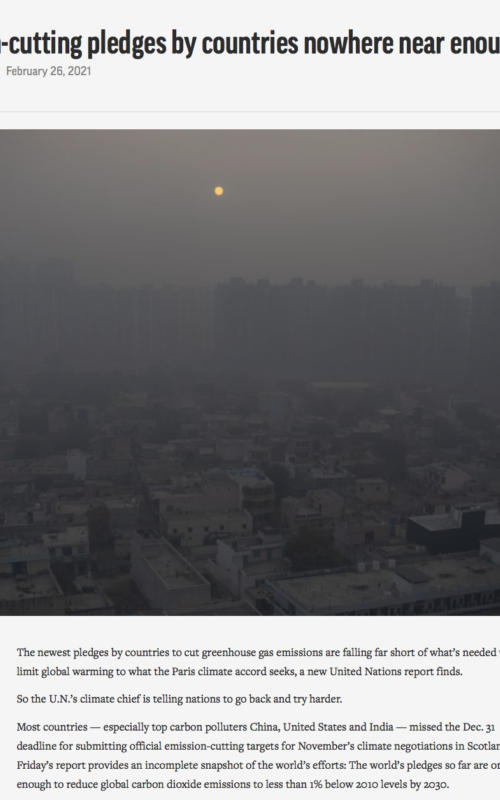
Associated Press
The world’s climate pledges so far are only enough to reduce global carbon dioxide emissions to less than 1% below 2010 levels by 2030, according to the UNFCCC. Instead of limiting the world to only 1.5 degrees Celsius (2.7 degrees Fahrenheit) of warming since pre-industrial times — the more stringent of two Paris accord goals — the data shows that world “is headed to close to 3 degrees Celsius (5.4 degrees Fahrenheit) and a global catastrophe if this is not curtailed quickly,” said Bill Hare, director of Climate Analytics.
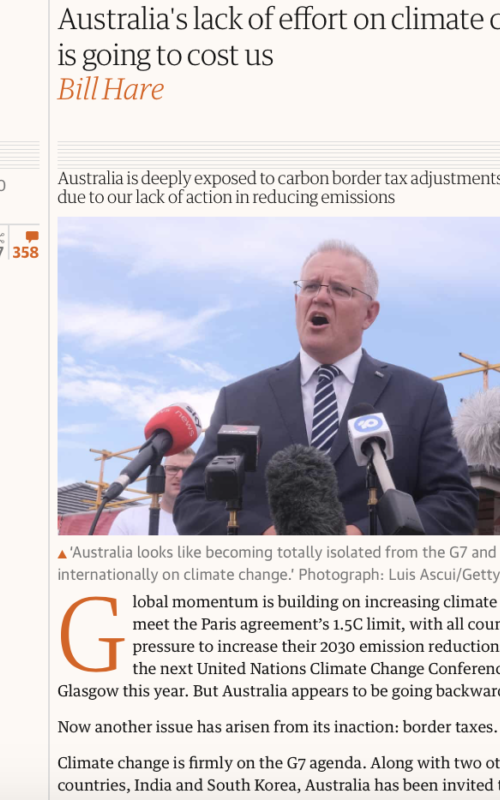
The Guardian
Many large countries, including the US, the EU, and Australia's key coal and gas markets China, Japan, South Korea, are looking at deeper emission reductions. But Australia appears to be going backwards. Now another issue has arisen from its inaction: border taxes - Climate Analytics CEO Bill Hare commentary in The Guardian.